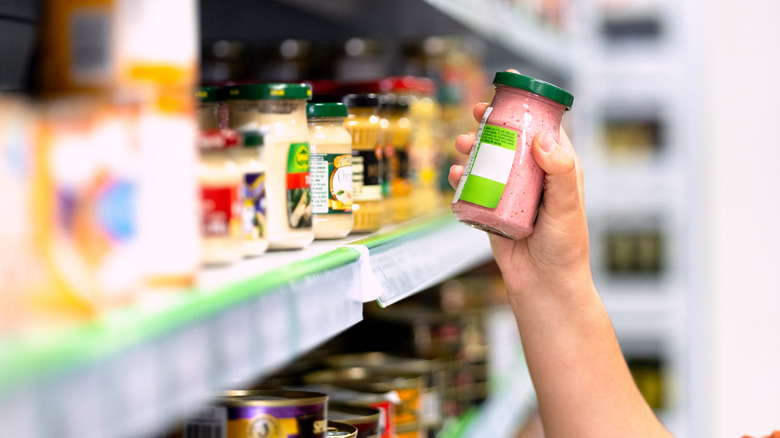What Does A 'Class One' FDA Recall Mean?
Food recalls can happen for scary reasons, like when non-edible or even toxic elements somehow end up contaminating food. No one wants to bite down on their dino nuggies and find little pieces of, well, something non-dino-nuggie-related in there, like plastic. However, some situations are more serious than others, which is why the U.S. Food and Drug Administration (FDA) has separated food recalls into three distinct categories: Class I, Class II, and Class III.
According to the FDA's breakdown of these different categories, a Class I recall is the most serious, and it means there's a "reasonable probability" a product could seriously harm someone's health or even kill them. Sounds pretty scary. And it happens maybe more often than you think. One of the most recent Class I recalls was for Boar's Head Ready-To-Eat Meat and Poultry Products. This was announced on July 30 after a liverwurst sample was found to be contaminated with a strain of listeria, which could cause serious health problems for anyone who consumed it, with some groups (older people, pregnant people, and people who are immunocompromised) being at a higher risk of becoming ill.
After Class I, other recall categories are less severe. Class II recalls involve products that can affect someone's health, but it wouldn't be quite as likely or serious. Class III recalls happen when the product still needs to be removed from the market, but it probably won't hurt anyone.
What to do if your food is recalled
Some foods are more likely to be recalled than others. For example, meats, seafood, soft cheeses, leafy greens, and other foods are more likely to be contaminated with something that could harm people, like listeria, salmonella, or E. coli. If a product you use or possess has been recalled, it's important to take steps right away to protect your health. Stop using or consuming it, and check the recall notice for more details on how to get rid of it. This is also important to protect others from being exposed to anything dangerous. If you did consume something that is deemed risky, be sure to keep an eye on your health for signs of illness. Of course, seeing a doctor is the best bet if you are experiencing any symptoms.
You can find the latest recall information at the FDA's website or FoodSafety.gov, which also has other tips on food safety, allergies, how to avoid food poisoning, and other important topics for consumers. Often, a company or store will give consumers refunds or replacements for recalled items. So consult official sources like the FDA or other government agencies for more information related to the specific recall.

